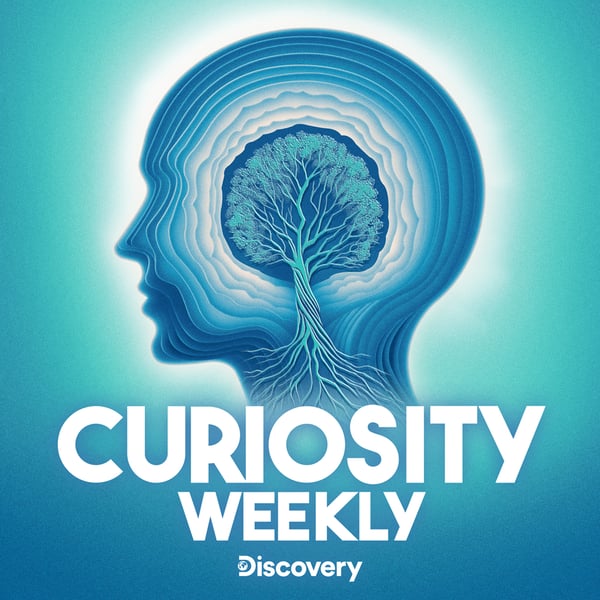Covid’s Bright Side, Frogs Out on a Limb, Fertilizing Fuel
Curiosity Weekly
Warner Bros. Discovery
4.6 • 935 Ratings
🗓️ 8 April 2022
⏱️ 16 minutes
🧾️ Download transcript
Summary
Today, you’ll learn about how COVID-19 may have revamped cities for the better, astounding new technology that could one day regrow human limbs and how an agricultural fertilizer is going from feeding the world to potentially powering the world.
The pandemic changed more than just our home lives, it also changed the way we live in our cities.
The Pandemic Might Have Redesigned Cities Forever by Adam Rogers
Pandemic-led decline of US cities may be reversing by Howard Schneider
Car-Free Transportation Gets Boost from U.S. Grant Program by Laura Bliss
Pandemic-era Street Spaces: Parklets, Patios, and the Future of the Public Realm by John Bela
The Status of Outdoor Dining Across the Country by Amy McCarthy
Frogs found new legs with and exciting new breakthrough in limb regeneration.
A new device helps frogs regrow working legs after an amputation by Carolyn Wilke
Frogs regrow amputated legs in breakthrough experiment by Patrick Pester
Could Humans Ever Regenerate a Limb? by Jesse Emspak
How do we use frogs in research? by The Francis Crick Institute
Scientists regrow frog’s lost leg by Tufts University
Ammonia gets a bad rap, but a new “green” ammonia may be our solution to net zero carbon emissions.
Can ‘Green’ Ammonia Be a Climate Fix? by Nicola Jones
Green ammonia could produce climate-friendly ways to store energy and fertilize farms by Stephen Ornes
Ammonia: zero-carbon fertiliser, fuel and energy store by The Royal Society
Satellite Data Detects Hundreds of New Sources of Ammonia Pollution by Jason Daley
Watch this TED talk to get up to speed on green ammonia and shipping by Maria Gallucci
Follow Curiosity Daily on your favorite podcast app to get smarter with Calli and Nate — for free! Still curious? Get exclusive science shows, nature documentaries, and more real-life entertainment on discovery+! Go to https://discoveryplus.com/curiosity to start your 7-day free trial. discovery+ is currently only available for US subscribers.
Hosted on Acast. See acast.com/privacy for more information.
Transcript
Click on a timestamp to play from that location
| 0:00.0 | Hi, you're about to get smarter in just a few minutes with Curiosity Daily from Discovery. |
| 0:09.0 | Time flies when you learn super cool stuff. I'm Nate. |
| 0:12.0 | And I'm Callie. If you're dropping in for the |
| 0:13.9 | first time welcome to curiosity where we aim to blow your mind by helping you grow |
| 0:18.0 | your mind. If you're a loyal listener, welcome back. Today you'll learn about |
| 0:22.2 | how COVID-19 may have revamped cities for the better, astounding |
| 0:26.3 | new technology that could one day regrow human limbs and how an agricultural fertilizer |
| 0:31.5 | is going from feeding the world to potentially |
| 0:33.7 | powering the world. Without further ado let's satisfy some curiosity. |
| 0:37.6 | Hey there, before we get into our story let's first recognize that as of March 2022 over 6 million people have lost |
| 0:45.7 | their lives to COVID-19. Six million. That's a hard number to imagine but it |
| 0:51.0 | includes grandparents, mothers, fathers, siblings, daughters, sons, and friends. |
| 0:56.4 | That's right. We all have been affected by the pandemic, some more than others, without a doubt. |
| 1:01.8 | Our species will be emerging from this mess for years to come. |
| 1:05.4 | So now, more than ever, we're looking for a silver lining. |
| 1:08.9 | A bit of hope to grasp onto is we finally step into that cliche, |
| 1:12.2 | new normal that everyone has been talking about. |
| 1:14.3 | Ugh, new normal. If I had a nickel for every time I heard that phrase, you'd have a lot of nickels, but then yeah you got to put them all in a bunch of |
| 1:22.8 | zip lock bags, leg them to the bank, get them counted. The phrase should be if I had |
| 1:26.8 | a hundred dollar bill for every time I heard that phrase. That's actually a good |
| 1:30.3 | point. Why are we shortchanging ourselves? The phrase probably originated decades ago when a nickel could buy your whole house. |
| 1:37.0 | Exactly, and that is a perfect transition into today's story. |
... |
Please login to see the full transcript.
Disclaimer: The podcast and artwork embedded on this page are from Warner Bros. Discovery, and are the property of its owner and not affiliated with or endorsed by Tapesearch.
Generated transcripts are the property of Warner Bros. Discovery and are distributed freely under the Fair Use doctrine. Transcripts generated by Tapesearch are not guaranteed to be accurate.
Copyright © Tapesearch 2025.

